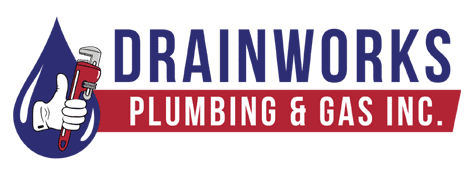Every homeowner is susceptible to water damage, which is a major issue. Mold growth, structural damage, and even health issues are all possible effects of water damage. Fortunately, there are things you can do to protect your property from water damage. We’ll talk about some advice for protecting your home from water damage in this blog.
Consistently Check Your Plumbing
Regular plumbing inspections are the first step in avoiding water damage. Examine the area surrounding your sinks, toilets, and other plumbing equipment for leaks, drips, and indications of water damage. Check for water stains on the walls and ceilings, and look for moisture stains under sinks and around appliances.
It’s critical to take immediate action if there are any indications of water damage. Over time, even minor leaks can do a great deal of harm. To check for leaks or water damage and repair it, call a qualified plumber.
Keep up with your appliances
If your appliances aren’t properly maintained, they could be a frequent source of water damage. Inspect the hoses on your dishwasher and washing machine for signs of wear or damage. If they are fractured or showing wear, replace them. To stop the growth of mold, it’s also critical to periodically clean your appliances.
Add a Sump Pump
Water damage in your crawl space or basement can be avoided with the aid of a sump pump. In the event of a flood or significant rain, a sump pump is intended to evacuate water from your property. Consider installing a sump pump if you live in a flood-prone location to stop water damage.
Install a water alarm
A water alarm is a gadget that may find leaks in water and notify you of the issue. To help avoid water damage, water alarms can be placed next to your water heater, washing machine, or other appliances. The alarm will go off if a leak is found, allowing you to fix the problem before serious damage happens.
Maintain Clear Gutters and Drains
Your home may sustain water damage as a result of clogged gutters and downspouts. Water can overflow from clogged drains and gutters and enter your house. To avoid water damage, clean your gutters and downspouts frequently.
Put window well covers in place
It’s crucial to install window well coverings if your basement has windows. You may stop water from penetrating your basement through the windows by using window well covers. They can help keep the window wells from being clogged with debris.
Keep track of your water bill
Your water bill may be a reliable sign of leaks or water damage in your home. Your water bill may have suddenly increased due to a leak if you see this. If you observe a sudden rise in your water bill, call a qualified plumber to examine your plumbing.
Be Aware of Your Main Water Shut-Off Valve’s Location
In the event of a water emergency, it’s critical to know the location of your main water shut-off valve. Turning off the water supply in the event of a leak or floods can assist stop further damage. Make sure everyone in your home is aware of where the main water shut-off valve is.
Maintain Your Roof
A leaky roof can seriously damage your home’s inside with water. Keep your roof maintained to avoid water damage. Regularly inspect your roof for signs of wear or damage, such as missing shingles or cracks. Contact a qualified roofing contractor to repair any damage you see to your roof.
Use a water softener
Mineral buildup in your appliances and piping from hard water can result in leaks and other water damage. Consider using a water softener to remove minerals from your water to prevent this. Your plumbing and appliances’ lifespan and effectiveness can both be increased with a water softener.
Examine the Water Pressure
Your plumbing may get stressed by high water pressure, which also raises the possibility of leaks and water damage. Make sure your water pressure is consistently between the acceptable range of 40 and 80 psi. Consider adding a pressure lowering valve to lower the pressure if your water pressure is too high.
Protect Your House
Your home needs to be properly sealed to avoid external sources of water damage. Your foundation, walls, and windows should all be sealed to stop water from entering your house. To stop water from leaking in, ensure that your doors and windows are well sealed.
Get a sewer line inspection
If your sewer line gets clogged or broken, it could lead to water damage. To make sure your sewer line is in good shape, have it checked frequently. You should get in touch with a qualified plumber to fix the problem if you see any indications of a clog or damage.
In conclusion, protecting your home from water damage is crucial for both the structural integrity of your house and the health and safety of your family. Maintaining your roof, using a water softener, checking your water pressure, sealing your home, disconnecting hoses in the winter, having your sewer line inspected, cleaning gutters and downspouts, installing a sump pump and water alarm, cleaning gutters and downspouts, installing window well covers, keeping an eye on your water bill, knowing where your main water shut-off valve is located, and all of the above can help prevent water damage. If you do have water damage in your house, it’s crucial to take action right once. To assist you in repairing any water damage and preventing further damage, get in touch with a reputable plumber or water damage restoration business.
Water damage prevention is one of the plumbing services we do at Drainworks Plumbing and Gas. By evaluating your plumbing and appliances, setting up a sump pump and water alarm, among other things, our team of skilled plumbers can help you prevent water damage in your house. Contact us today to schedule an appointment and protect your home from water damage.



